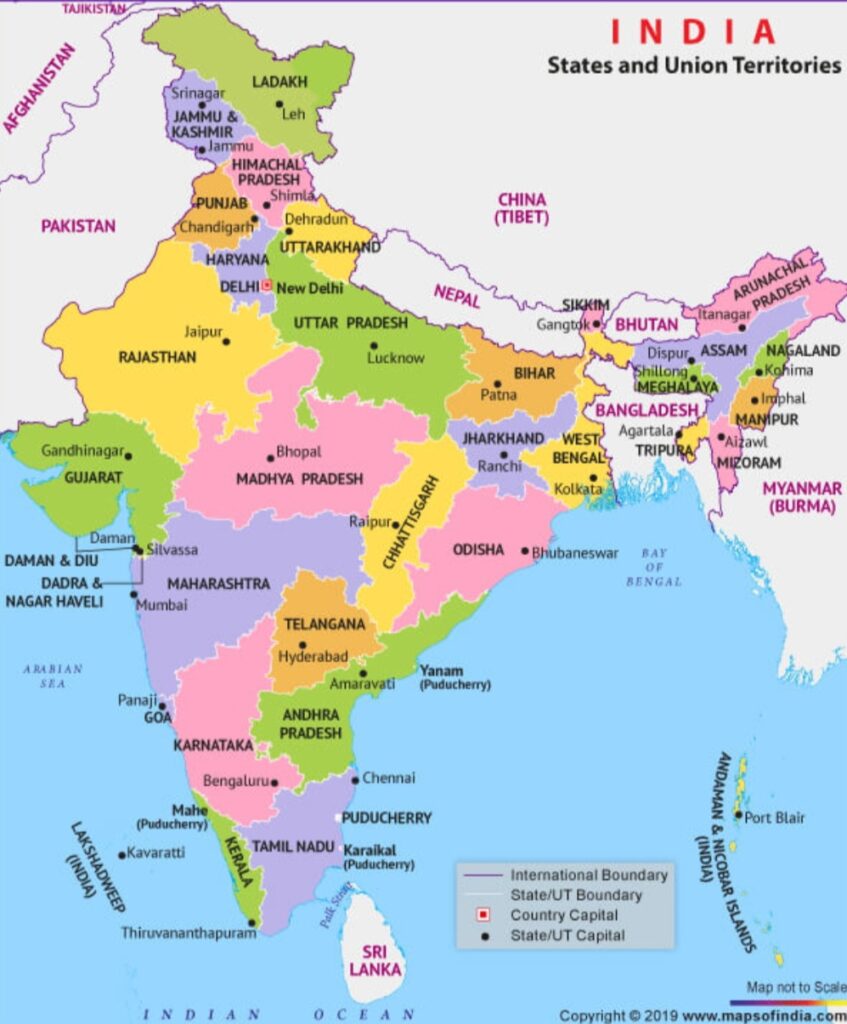By: Anamika Tiwari, Guest Author, GSDN

“A Rashtra’s strength is rooted in Dharma (righteousness), Artha (prosperity), Kama (aspirations) and Moksha (higher purpose). Strategic wisdom lies in balancing diplomacy, warfare and governance through careful deliberation.”– Kautilya
The study of military strategy today draws its foundational concepts from those authored in western concepts by the likes of Clausewitz and Prince. While those concepts do provide some practical insights into strategies and tactics however are far from relevance when considered into the domains of polity, governance, diplomacy, economy and such other relevant fields. War and strategy are not exclusive to any hemisphere. Nor are they the products of the experience of any one society. Concepts on strategy are in fact the product of the cumulative wisdom of a civilisation or a society drawn from its historically lived experience. In the case of Bharat, its strategic culture is rooted in a civilisational consciousness that spans millennia, predating the modern conception of the nation-state. Unlike many contemporary powers whose strategic traditions are founded on colonial conquest or ideological expansionism, Bharat’s worldview is deeply rooted in a unique interplay between cultural awareness, social cohesion, sustainable practices, environmental security, collective intelligence, ethical leadership, values, spirituality and realism.
Bharat had oral intellectual traditions which in some cases were also written down as Grantha. The foundational Granthas that is the Vedas, Mahabharata, Bhagavad Gita, Arthashastra, Tirukkural and Manusmriti have provided Bharat with a rich repertoire of ideas on statecraft, warfare, intelligence, and ethical leadership. These knowledge texts also served as the foundational pillars in shaping this culture and providing the principles that enabled ancient kingdoms to flourish. This intellectual legacy offers a time-tested framework for addressing contemporary geopolitical challenges, from great power rivalries to hybrid warfare and climate crises. Over time, four enduring principles have shaped Bharat’s world outlook are Yatharthavaad (Realism) which recognizes the power dynamics and pragmatic responses Sah-Astitva (Coexistence) talks about accommodation of diversity and cultural pluralism, Sahyog (Cooperation) emphasises on collective action and progress and finally Sahabhagita (Partnership) which emphasizes on shared responsibility for regional stability. Together, these reflect a civilizational approach that marries realism with restraint, deterrence with dialogue, and power with principle, an approach distinctively Bharat in spirit.
Historical failures whenever it has happened over the millennia, were exacerbated by neglect of alliance-building (Sandhana Neeti) and resource preparedness (Kosha). The modern quest for Atmanirbhar Bharat for defence indigenisation, energy security, and technological resilience directly echoes this ancient wisdom. Whether building 500 GW of renewable capacity by 2030 or investing in semiconductor ecosystems, Bharat is realigning Artha (economic strength) with Maram (defence capability). This synergy is vital to face resource competition and technological contestation with regional rivals. Ancient Bharat statecraft placed intelligence and deception at the heart of national security. From Kautilya’s elaborate spy networks to the covert diplomacy of Chandragupta Maurya, effective intelligence gathering was indispensable. Today, rebuilding indigenous intelligence capabilities is equally vital as counterterrorism operations demand local intelligence ecosystems, cybersecurity requires offensive and defensive capabilities and strategic deception is essential to safeguard critical assets and maintain deterrence.
The Arthashastra’s Rajamandala doctrine, which mapped concentric circles of friends and adversaries, remains highly relevant in countering modern encirclement and regional instability. Today, various partnership alliances and bilateral to multilateral partnership initiatives and maritime security arrangements are expressions of our ancient ethos, ensuring that Bharat avoids isolation and preserves strategic depth. Bharat strategic thought has also demonstrated a historical adaptability in asymmetric conflicts, whether through guerilla warfare against colonial rule or hybrid security approaches in contemporary counterinsurgency operations.
The Mahabharata’s doctrines of Maya Yuddha (deception in warfare) and Gupta Chara (secret intelligence) equip Bharat to counter hybrid threats of cyberattacks targeting critical infrastructure, disinformation campaigns and proxy terrorism networks. Reviving these practices will facilitate in pre-empting intelligence failures and protect Bharat’s sovereignty in the digital era. Likewise, these two principles of Gita that is Samatvam (equanimity) and Nishkama Karma (duty without attachment to outcomes) emphasises steadfastness under pressure. Today, these principles manifest in Bharat’s calibrated nuclear doctrine, climate leadership and humanitarian engagements in disaster relief. They offer a template for balanced leadership amid crises, whether geopolitical flashpoints or pandemics.
Ancient Bharat thinkers like Kautilya, Bhishma, and Vidura exemplified realpolitik without abandoning ethical grounding. The Arthashastra advocates a pragmatic fusion of Dandaniti (polity and punishment), Anvikshiki (logical reasoning and philosophy), Trayi (spiritual and religious studies), and Varta (economics and trade). Reclaiming this multidimensional approach helps Bharat pursue strategic autonomy while balancing partnerships with the global and regional actors, without sacrificing sovereignty.
Bharat’s influence has never relied solely on military might. From the Silk Road to the spread of Buddhism across Asia, civilisational soft power has been a potent instrument of diplomacy. In the contemporary era, Bharat’s cultural exports by means of yoga, ayurveda, cinema and development partnerships in Africa and Southeast Asia reflect the same ethos. Harnessing this soft power, complements military and economic instruments to build durable influence.
Bharat’s history underscores a recurrent theme that is the weakening of strategic culture has often led to catastrophic losses and foreign domination over centuries. Bharat’s vulnerability grew when it abandoned its indigenous frameworks of strategic thinking. Reinvigorating these principles is not a nostalgic exercise but an urgent necessity. Bharat’s ‘startegic thinking’ witnessed so clearly in the annals, among many, of the ancient Ikshvaku kings and, in the known histories, of Vikramaditya, Satkarni, the Mewar kings, the Colas, the Mauryas, the Guptas, Lalitaditya, Yashovarman, Shivaji, et al is a product of Nitishastra, Arthashastra and Dharmashastras apart of course from the sciences of weapons and war.
Unlike purely realist powers that subordinate all values to security, Bharat’s strategic culture offers a more holistic model: a civilizational ethos where power is tempered by moral obligations, prosperity is pursued alongside sustainability, and security is rooted in pluralism. This proposition is more relevant than ever in an era defined by Climate-induced migration and natural disasters, emerging technological contestation over critical technology and associated requirements of critical and rare earth elements, requisite energy resources and its denial, transnational terrorism and fragile global institutions who are unable to guarantee equitable development. Bharat’s civilisational world view-articulated in Vasudhaiva Kutumbakam (“the world is one family”) provides a moral counterpoint to the transactional calculus that dominates much of international relations today. Its strategic culture therefore does not merely safeguard borders; it aspires to model a just and sustainable world order.

About the Author
Anamika Tiwari is the Founder-Director of Ashwatth whose website is http://www.theindianknowledge.com/ and is internationally renowned for spreading Indic studies and awareness programs. She tweets at @BharatKanyaa.


This is absolutely an insightful writing by the author on the correlation of Indian strategic thought to the present day World Order which requires an adept handling by drawing lessons from our glorious past. This is exactly what the government and the national leaders are doing today, with rising economy, strong Armed Forces and diplomacy of a very high order resulting in exercising strategic decision making autonomy.